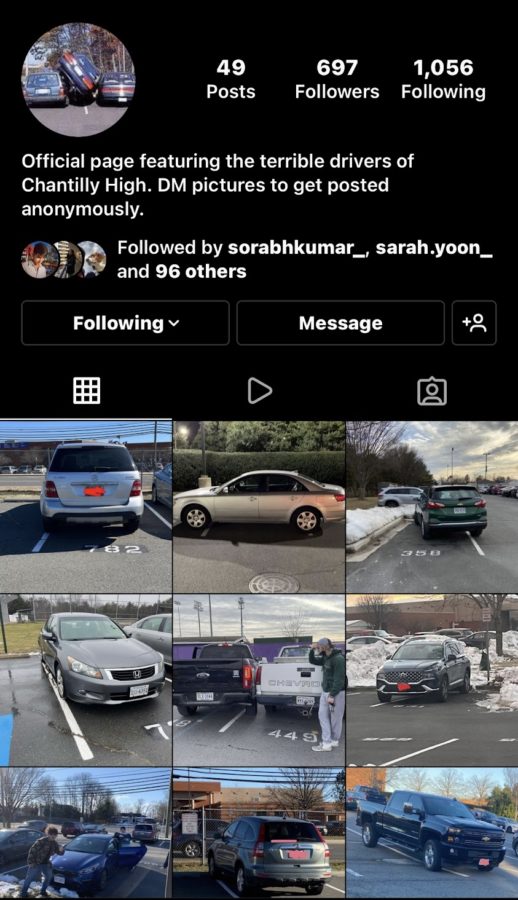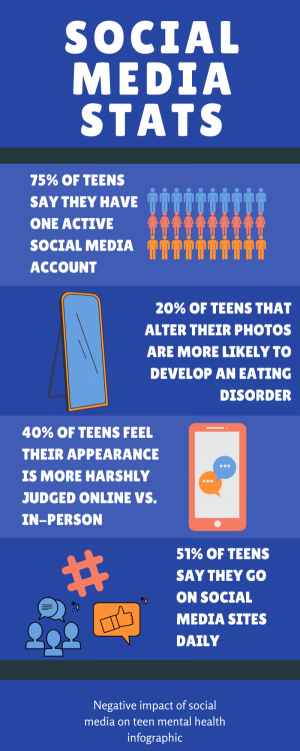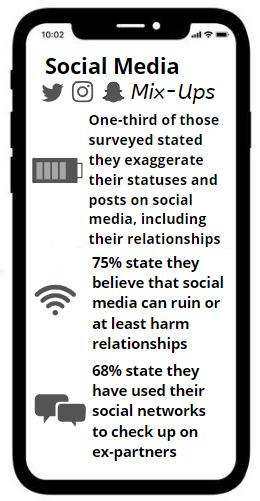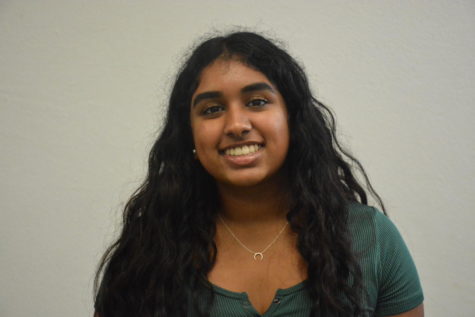Anonymous Instagram accounts take over students’ feeds
The bad parking account has 699 followers and first posted on Nov. 17.
February 19, 2022
From parking fails to getting caught without a mask, various anonymous Instagram accounts have been making light of students’ mistakes while attempting to entertain the CHS community. Some of these accounts have also been created to spread awareness.
“When I found the Chantilly Mask Police account, I found it interesting; not only were they raising awareness for wearing masks, but it was comic relief at the same time,” senior Sorabh Kumar said. “I then thought of making my own page for bad parking because every day, I come across many students having trouble parking. Basically, I did it to promote safe driving and efficient parking.”
Although the accounts may be for the student’s amusement, many accounts fail to ask for a student’s permission before posting a picture of them. Whether they post a student’s car or their class, it’s not a mutual agreement.
Additionally, the problem of cyber shaming arises with photos taken without permission. Many students have been publicly embarrassed by these accounts and do not feel safe at school, with the constant risk of being violated.
“I’m always looking over my shoulder to see if someone’s taking a photo when my mask is down or if I eat or sleep in class,” senior Sheona Jerin said. “If consent isn’t asked, it’s an invasion of privacy, and in any other place, would be a direct violation.”
According to NCES, in 2019, about 16 percent of students in grades 9–12 reported being electronically bullied during the previous 12 months.
“I wouldn’t really be okay with being posted on these accounts because most of the time, you don’t even know that they posted you and people would be looking at the post as entertainment.” junior Khadeeja Bandukwala. “Even though the post might be funny, I just wouldn’t want it on the internet without my consent.”
However, some accounts, such as accounts that require student participation, ask for students’ consent. When a confession Google form is filled out and submitted, it automatically tells the owner that they are allowed to post it. Owners of other anonymous accounts also try to be careful with students’ privacy.
“[On] my driving account, people anonymously submit photos,” Kumar said. “I then cross out the license plate and parking spot number.”
Yet, there are still accounts that are designed to call people out rather than spread awareness.
“Anonymous accounts lift filters,” Jerin said. “These posts can be as brutal as possible and not pin blame on anyone. They help people express themselves without an identity and some things are easier to talk about that way.”





